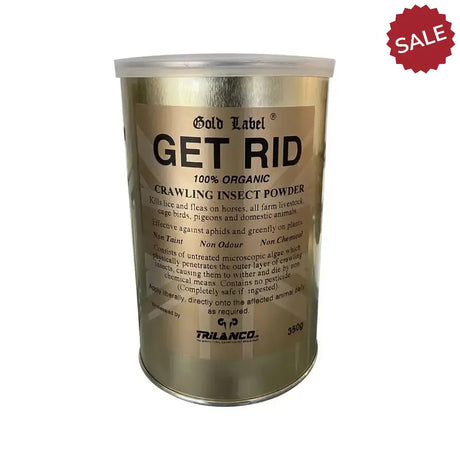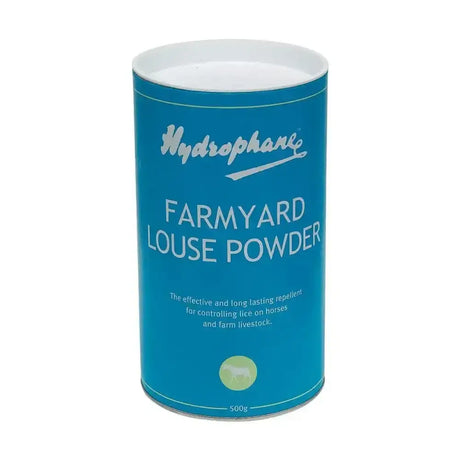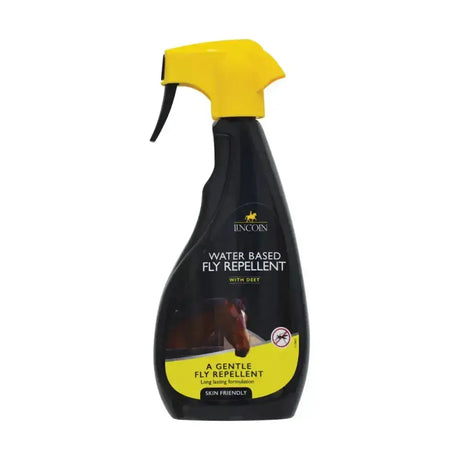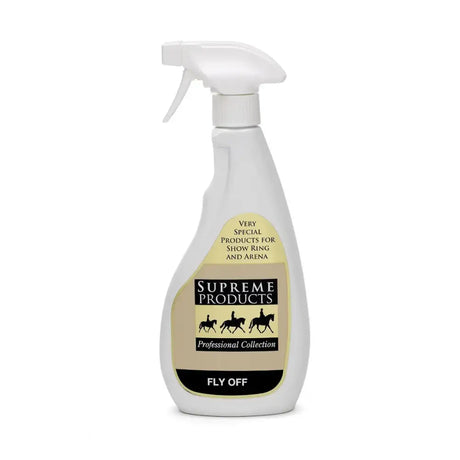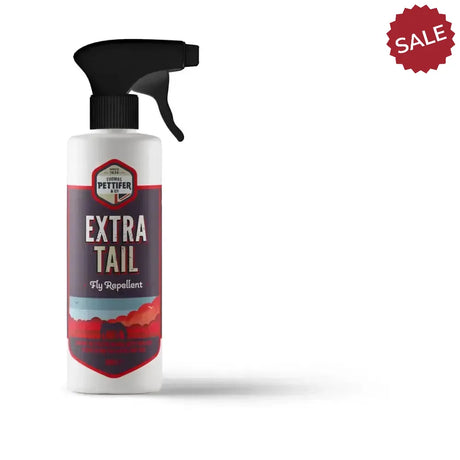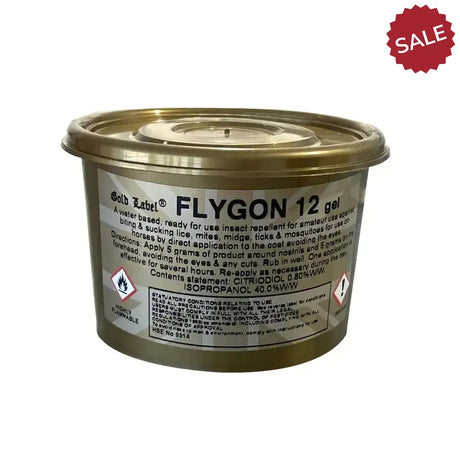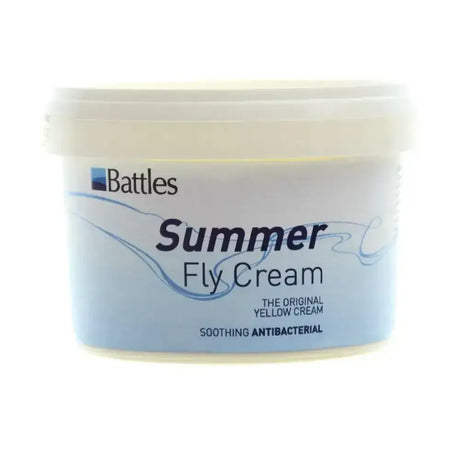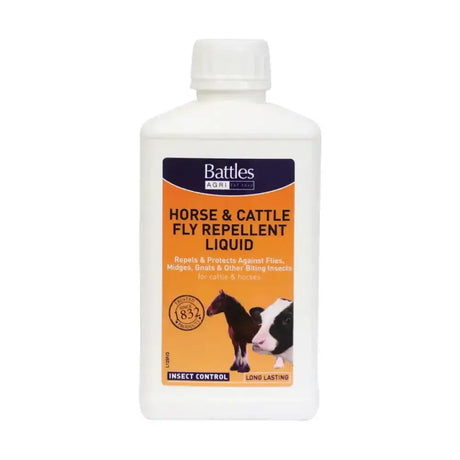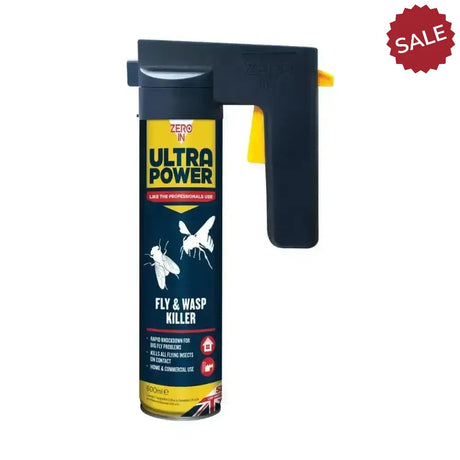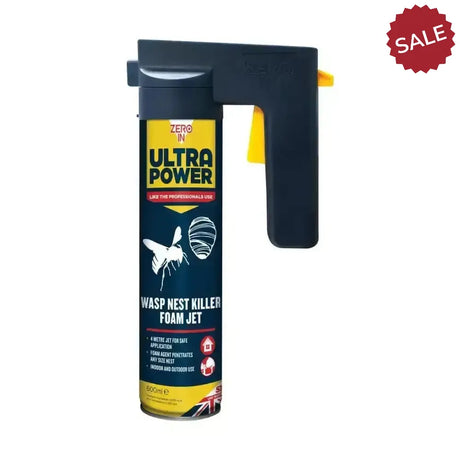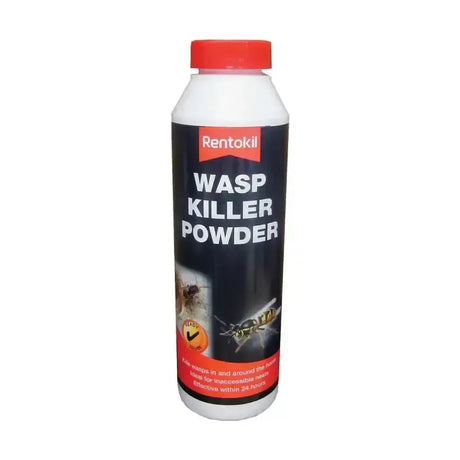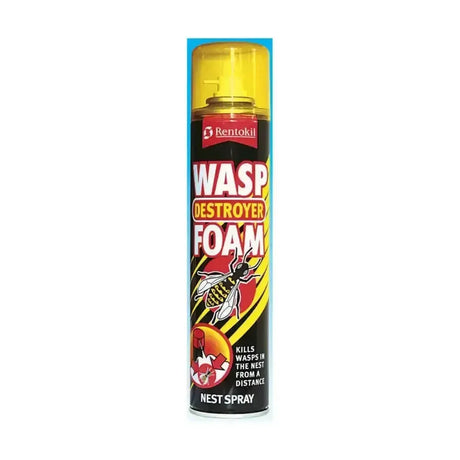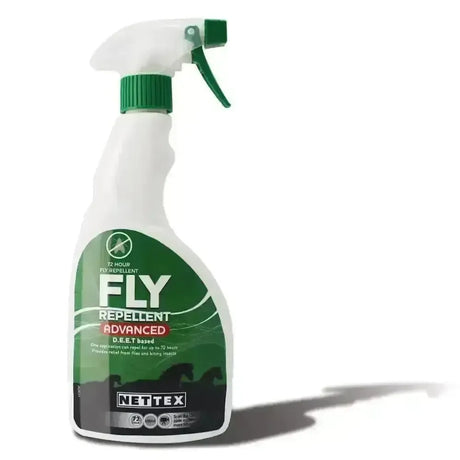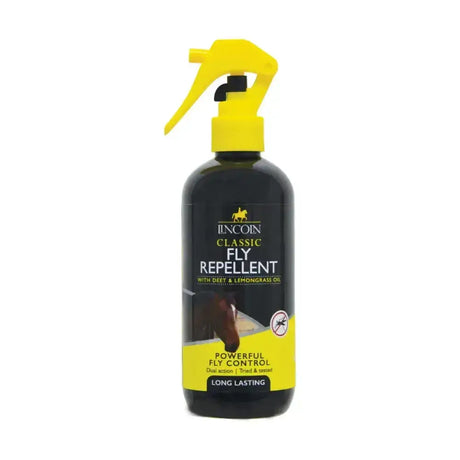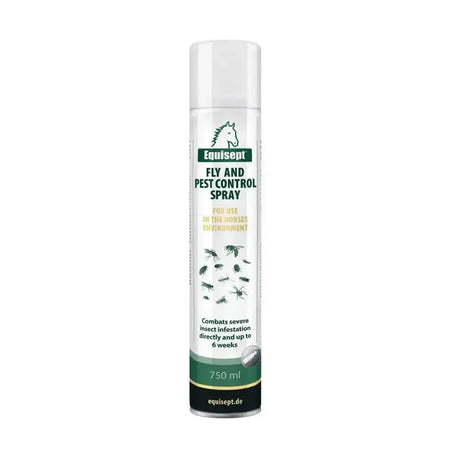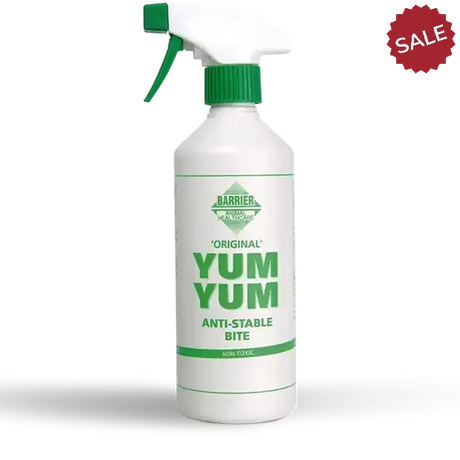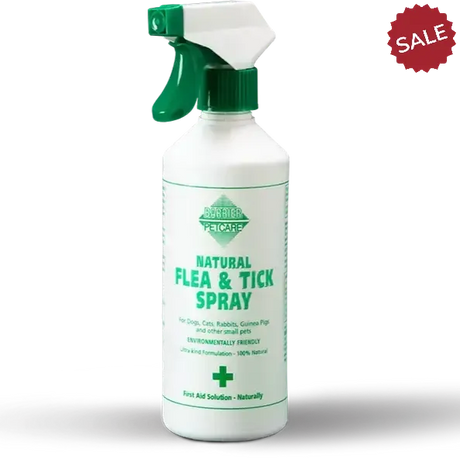Essential Fly Sprays and Fly Repellents For Horses
Shop From Our Summer Lines For Horse Lovers
Or You Can Shop Our Full Range Of Summer Essentials-
Pro-Equine Alternative Fly Spray
From £9.86£9.95Save OnlineUnit price /Unavailable -
£7.45
£8.47Save OnlineUnit price /Unavailable -
Hydrophane Farmyard Louse Powder
£10.95£14.50Save OnlineUnit price /Unavailable -
Lincoln Water Based Fly Repellent
£12.70£16.99Save OnlineUnit price /Unavailable -
Supreme Products Fly OFF Repellent
£11.75£13.99Save OnlineUnit price /Unavailable -
£9.09
£12.99Save OnlineUnit price /Unavailable -
£6.90
£7.86Save OnlineUnit price /Unavailable -
-
Battles Horse & Cattle Fly Repellent Liquid
From £12.61£14.99Save OnlineUnit price /Unavailable -
£13.00
£14.44Save OnlineUnit price /Unavailable -
£13.00
£14.44Save OnlineUnit price /Unavailable -
£8.77
£9.10Save OnlineUnit price /Unavailable -
£6.12
£6.80Save OnlineUnit price /Unavailable -
Nettex Fly Repellent Advanced 500ml Bulk Buy
£20.30Unit price /Unavailable -
From £8.72
£11.50Save OnlineUnit price /Unavailable -
Equine Products Equisept Flyspray
£14.72£15.75Save OnlineUnit price /Unavailable -
£9.94
£11.04Save OnlineUnit price /Unavailable -
Barrier Natural Flea & Tick Spray
£12.10£12.72Save OnlineUnit price /Unavailable
Fly Sprays and Fly Repellents
Fly sprays and fly repellents for horses are essential for controlling pests like flies, mosquitoes, and gnats, which can cause discomfort and even health issues in horses. These products help prevent flies from biting, transmitting diseases, and irritating horses, especially during warmer months when insects are more active.
Types of Fly Sprays and Repellents
There are several types of fly repellents available, each with different ingredients, effectiveness, and longevity. Some sprays provide instant relief, while others offer long-lasting protection.
1. Chemical Fly Sprays
- Ingredients: These sprays usually contain synthetic insecticides like pyrethrins, permethrins, or cypermethrins. These chemicals work by killing or repelling flies on contact.
- Effectiveness: Highly effective at repelling flies, mosquitoes, and gnats.
- Duration: Long-lasting protection, often up to several days, depending on the product.
- Considerations: Some horses may have skin sensitivities to certain chemicals. These sprays are generally safe when used as directed but should be applied with caution around sensitive areas like eyes and mucous membranes.
- Examples: Pyranha, Absorbine UltraShield, Farnam Endure.
2. Natural or Organic Fly Sprays
- Ingredients: Made from natural essential oils like citronella, eucalyptus, peppermint, and tea tree oil, these sprays are a safer, eco-friendly option.
- Effectiveness: Effective for short-term protection but may need to be reapplied frequently, especially in areas with heavy fly activity.
- Duration: Less durable compared to chemical sprays, typically lasting a few hours before requiring reapplication.
- Considerations: Suitable for horses with sensitive skin or owners who prefer a more natural approach.
- Examples: Espree Aloe Herbal Horse Spray, Absorbine Ultrashield Green, Equiderma Fly Spray.
3. Fly Repellent Gels and Roll-ons
- Ingredients: These often contain similar ingredients to sprays (chemicals or natural oils) but are applied more precisely in targeted areas.
- Effectiveness: Useful for applying to sensitive areas like the face, ears, and under the belly where sprays might be difficult or inappropriate.
- Duration: Provides localized protection but may need frequent reapplication in high-insect environments.
- Examples: Farnam Swat Fly Repellent Ointment, Absorbine UltraShield Roll-On.
4. Feed-Through Fly Control
- Ingredients: Feed-through supplements usually contain larvicides (e.g., diflubenzuron or cyromazine), which prevent fly larvae from developing in manure.
- Effectiveness: Works by breaking the fly life cycle, reducing the overall fly population.
- Duration: Must be used consistently as part of a long-term fly control program.
- Considerations: Does not repel flies directly but helps control fly populations over time.
- Examples: Farnam SimpliFly, Solitude IGR.
5. Fly Masks and Sheets
- Ingredients: These physical barriers are made from mesh and provide full or partial coverage for the horse's face or body.
- Effectiveness: Extremely effective at keeping flies off sensitive areas, especially the eyes and ears.
- Duration: Offers constant protection as long as the mask or sheet remains on the horse.
- Considerations: May not cover the entire body, so pairing with a fly spray is ideal for complete protection.
- Examples: Cashel Crusader Fly Mask, WeatherBeeta Fly Sheets.
Choosing the Right Fly Spray or Repellent
1. Type of Pests
- Flies and Gnats: Most fly sprays are effective against flies and gnats, but products containing permethrin are particularly good for long-lasting control.
- Mosquitoes: Choose a spray that lists mosquitoes among the pests it repels, as they can transmit diseases like West Nile Virus.
2. Horse’s Sensitivity
- For horses with sensitive skin or allergic reactions to certain chemicals, consider using natural fly sprays or gels with soothing ingredients.
- Always do a patch test before applying any new product to ensure the horse doesn’t have an adverse reaction.
3. Longevity and Weather Resistance
- If your horse spends a lot of time outside or is prone to sweating, a waterproof or sweat-resistant fly spray like Farnam Endure or Pyranha Wipe N’ Spray may be the best option.
- For shorter rides or indoor stabling, natural sprays may be sufficient but will need to be reapplied more frequently.
4. Environment
- Pastures with high fly populations may benefit from feed-through fly control in combination with sprays and physical barriers like masks or sheets.
- Barn and stable environments can be treated with automatic fly misting systems or fly traps to reduce the fly population.
Application Tips
- Test for Sensitivity: Before applying a new spray over the horse's body, perform a small patch test to check for adverse reactions.
- Apply Regularly: Reapply according to the product’s instructions, especially after your horse has been sweating, hosed off, or caught in the rain.
- Apply to Sensitive Areas Carefully: For areas like the face, ears, and under the belly, consider using a gel, roll-on, or spraying into a cloth and then wiping the product onto these areas.
- Combination of Methods: For the best protection, use a combination of fly sprays, masks, sheets, and environmental controls.
Preventing Flies Around Horses
- Manure Management: Regularly remove manure from paddocks, stalls, and surrounding areas to reduce fly breeding sites.
- Fly Traps: Place fly traps or sticky tapes around barns and pastures to capture adult flies.
- Stable Fans: Flies are weak fliers, so installing fans in stalls and barns can reduce fly activity.
- Automatic Misting Systems: These systems can be set up in barns to release insecticide mist at intervals, reducing flies in confined areas.
Popular Fly Sprays and Repellents for Horses
- Absorbine UltraShield EX: A powerful chemical fly spray offering long-lasting protection (up to 17 days) against flies, mosquitoes, and ticks.
- Pyranha Wipe N’ Spray: A well-known fly spray that kills and repels flies, mosquitoes, and gnats with a long-lasting formula.
- Farnam Endure Sweat-Resistant Fly Spray: Designed to withstand sweat and rain, offering extended protection.
- Equiderma Neem & Aloe Fly Spray: A natural alternative containing neem oil and aloe to repel flies while soothing the horse's skin.
Using the right fly spray or repellent and combining it with good stable management can significantly reduce the fly burden on your horse, ensuring they stay comfortable and healthy throughout the fly season.









